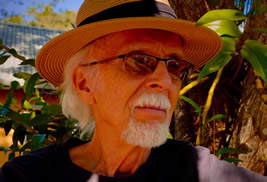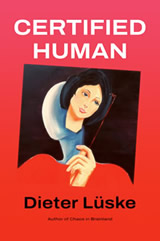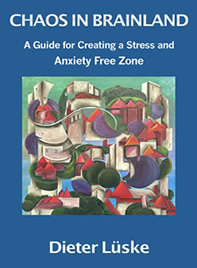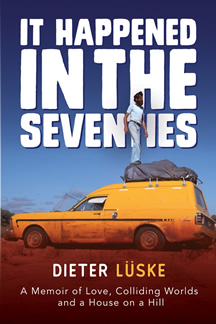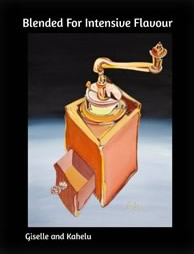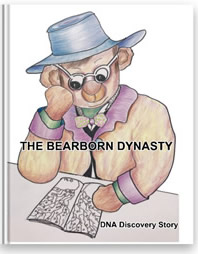Certified Human - Author Interview
Dieter Luske - Author of fiction & non-fiction
Canungra - Gold Coast Hinterland - Queensland - Australia - Planet Earth
By attempting the impossible - one is meaningfully occupied (D.L.)
* Certified Human - the book is set in Brisbane and Sydney Australia
Author Interview by Journalist Fred Plummer - the Fact File News
Journalist:
I enjoyed reading your book. What inspired you to write about fraud and crime related to high tech?
Author:
Ever since the internet arrived in our homes, I’ve believed that, despite its many positive uses, the problems it causes could eventually come back to bite us.
Artificial Intelligence has accelerated this concerning progress, adding fake content and imitating real people. Robots and androids are already here and will soon become mainstream. Even so, my novel is meant to entertain and is centred on crime and high tech, but in doing so, it raises awareness of what could and probably will happen if we don’t prevent it.
Journalist:
Your crime stories include hints of conspiracy theories; what is the reason for that?
Author:
Everything in life is about different perspectives. What is right for one person may be wrong for someone else. Conspiracy is just another perspective that sometimes becomes real. New technologies require us to view them from various angles to avoid harmful outcomes.
Journalist:
Don’t people usually exaggerate an adverse scenario or conspiracy?
Author:
Sure, some people do; others see right through it because they take a wider view.
Some people have a strong vision of how the future should be and firmly believe that their vision is the right way, without realising they are suffering from tunnel vision. All of their thinking is aimed at proving themselves right. If those people have the power to bring their vision to life, they can become dangerous to society. The Zookeeper in my story is such a character. My book, in parts, offers hints to become aware of those potential threats ahead.
Journalist:
How did you come up with the Zookeeper character, the non-violent billionaire aiming to rule the world by gradually infiltrating human society with technology only he can control? He sounds like a nasty piece of work.
Author:
I like high tech but am aware of how technology gradually influences the way we think, act, and behave. This inspired me to imagine a sinister figure, the Zookeeper, who has an evil plan to breed complacency and deepen technological control over humans without their awareness. His motivation is pure conspiracy theory. In his mind, he is the only one who can save our planet, but the way he wants to do it will not be to our liking.
Journalist:
Why did you call him Zookeeper?
Author:
He views the world as his zoo, with people serving as the inhabitants kept and controlled.
Journalist:
Your book can hardly be called sci-fi; it takes place only a few years in the future. Why is that?
Author:
I didn’t actually need to set it in the future at all. I only did so to make sure people see it as fiction. The technology described, from advanced AI to robots and androids, is already here. It’s just not cost-effective yet, but it will be.
Not many people enjoy housework, but a robot that can do the chores for you is still too pricey; once the cost drops, a revolution in robot ownership will follow.
The Zookeeper is cleverly selling his robots at cost price, outsmarting all the competitors. - That’s when the sinister part begins. Whoever controls the robots also controls information. The robots can gather your personal data, and yes, that is already happening. Without revealing too many plot details, I can say that within the book and in real time, it becomes quite scary.
Journalist:
What did you base your protagonist on?
Author:
My protagonist, Blake Newcome, is an investigative journalist with a keen interest in technology. He often gets help from a few mates. They meet up frequently over homemade pizzas to unravel the mystery of the Zookeeper.
One day, Blake has a shocking encounter. What he can see and hear is no longer reality. Society has been silently infiltrated by machines that look and act like us. He discovers the Zookeeper, a devious mastermind whose plan is to lure people into a false utopia.
Journalist:
Your cover looks intriguing. Does it convey a specific meaning?
Author:
Sure, and the meaning will reveal itself in the book. It also means we all wear a mask, and no one knows anymore what is real or not.
Journalist:
How important is a sense of place? Why set it in Brisbane and Sydney?
Author:
Well-known places like Brisbane and Sydney shape identities and give a sense of belonging. I prefer to write with a real location in mind, which helps me connect to it, and I believe the same is true for the reader.
Journalist:
And finally, the book title: Certified Human, will that be the future, do we have to do that?
Author:
Everything could be fake already, we just don't know anymore, certification which can't be faked may be an option.
Certified Human - by Dieter Luske - Speculative Fiction
What’s the book about? Set in Australia in 2033, we follow Blake Newcome, an investigative journalist who undergoes a shocking awakening. What he perceives through sight and sound no longer aligns with reality. Society has been infiltrated by AI and androids that mimic human appearance and behaviour.
People need assurance that what is created by humans is Certified Human. Serious crimes, political corruption, and economic monopolies must be stopped. Who has initiated this onslaught of deceit upon the population?
Certified Human will ignite your imagination and provoke deep thoughts about the future direction of humanity. But here’s the kicker: this dystopian reality isn't just a flight of fancy. It’s happening right now!
Buy Certified Human Now! - Paperback: $29.95 - E-book: $7.99
IN THE NEWS: In Daily Qld
The art of becoming a writer – it’s only human!
For updates join our "Brainland Blog and Newsletter"
Blake Newcome - Investigative Journalist, is the protagonist of the book:
"Certified Human©" by Dieter Luske
-
Blake Newcome has introduced himself to the public:
Blake Newcome, journalist for the Fact File News -
Health Tracker Wearable Devices - Proceed with caution - Article by Blake Newcome
-
The Future has Passed - 19. of March 2016, the day the world was rudely disrupted ... read more - - Article by Blake Newcome
-
Preventative DNA Checkups - The future is all on your mobile device - - Article by Blake Newcome
-
.. stay tuned - Blake Newcome
Join the Brainland Blog and Newsletter
Books by Dieter Luske - Available on Amazon
|
|
